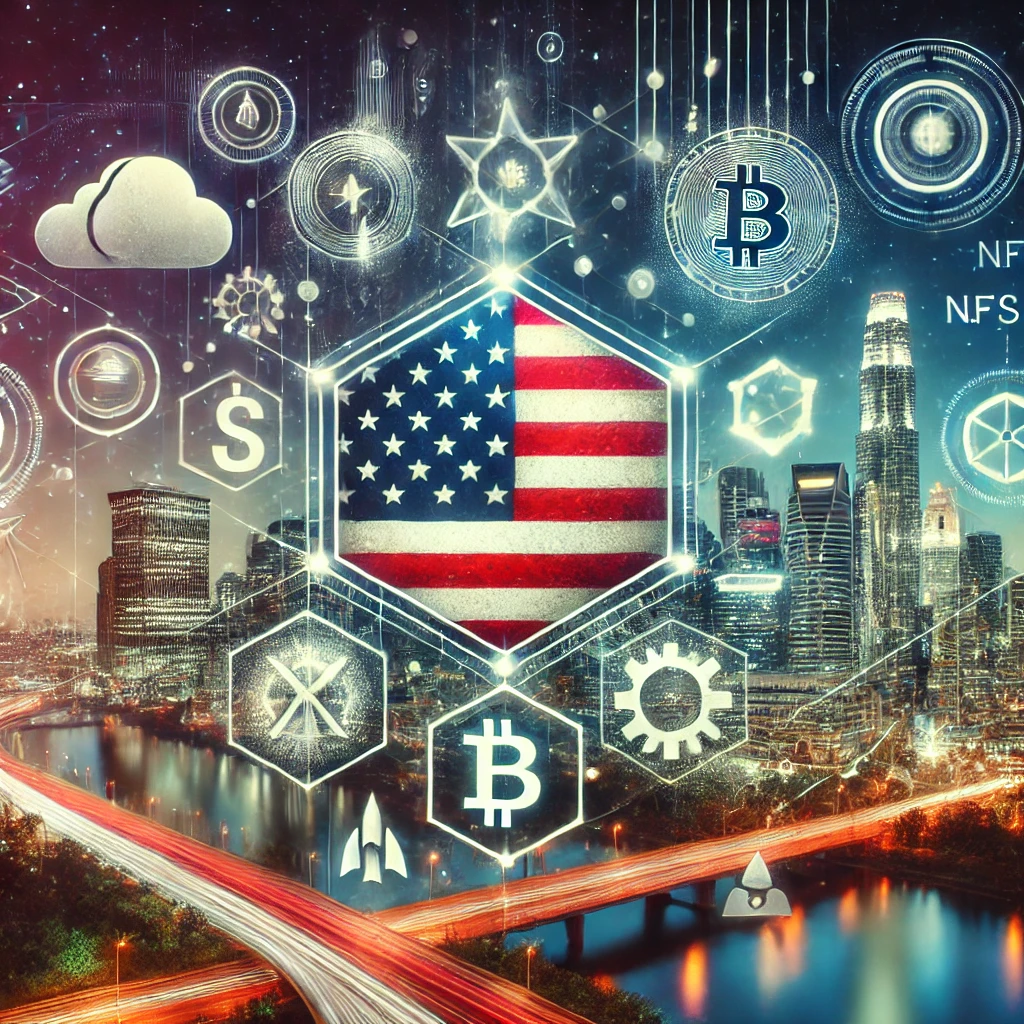Web3, the decentralized evolution of the internet built on blockchain technology, is reshaping how individuals interact with the digital world. In the United States, Web3 is gaining significant traction, but with opportunities come challenges. This blog explores the current landscape of Web3 in the U.S., including its growth, regulation, and future potential.

Growth of Web3 in the U.S.
The U.S. has emerged as a key player in the Web3 ecosystem, with a thriving community of developers, investors, and innovators driving the space forward. Some of the biggest Web3 companies, such as ConsenSys, Coinbase, and Chainlink, are based in the U.S. These companies are leading the charge in areas like decentralized finance (DeFi), NFTs, and smart contracts, all of which are transforming industries from banking to art.
Key Developments:
- Decentralized Finance (DeFi): DeFi applications have seen rapid growth in the U.S., allowing users to lend, borrow, and trade without traditional financial intermediaries. Platforms like Aave and Uniswap are popular among U.S. users.
- NFTs (Non-Fungible Tokens): NFTs have become mainstream in the U.S., especially in art, gaming, and entertainment. High-profile sales on platforms like OpenSea and the rise of NFT-based communities have contributed to this surge.
- Smart Contracts: Smart contracts, which allow for automated and self-executing agreements, are being widely adopted by U.S. companies to streamline operations and reduce costs in supply chain management, real estate, and beyond.
Regulatory Landscape
One of the biggest challenges Web3 faces in the U.S. is regulatory uncertainty. While the technology promises decentralization, regulators are concerned about issues such as fraud, money laundering, and the environmental impact of blockchain mining.
Key Regulatory Issues:
- Securities Regulation: The SEC (Securities and Exchange Commission) has been scrutinizing Web3 projects, especially in the context of whether tokens are considered securities under U.S. law. This has led to legal battles and calls for clearer regulation.
- Environmental Concerns: The energy consumption of proof-of-work blockchains like Bitcoin has come under fire, with U.S. policymakers pushing for more sustainable solutions, which is driving the transition to proof-of-stake models.
- Taxation: The IRS is increasing its focus on crypto taxation, requiring U.S. citizens to report digital assets and transactions on their tax filings. This has led to confusion and concerns over how Web3 assets should be taxed.
Opportunities Ahead
Despite these challenges, Web3 holds tremendous potential in the U.S., offering new opportunities for economic growth, job creation, and innovation.
Opportunities in the U.S. Web3 Space:
- Job Creation: The demand for Web3 talent is surging, with roles in blockchain development, cryptography, and decentralized application (dApp) development being highly sought after. U.S. companies are actively recruiting Web3 specialists.
- Innovation and Investment: Venture capital investments in U.S.-based Web3 projects have soared, signaling confidence in the future of decentralized technologies. From fintech to digital identity solutions, Web3 startups are gaining substantial financial backing.
- Financial Inclusion: Web3’s promise of decentralization could offer banking and financial services to underserved populations in the U.S. DeFi platforms have the potential to democratize access to credit and financial tools without relying on traditional institutions.
The Road Ahead
The future of Web3 in the U.S. is promising but uncertain. Policymakers, industry leaders, and innovators must work together to create a regulatory framework that fosters innovation while addressing concerns over security, sustainability, and legality.
In the coming years, we are likely to see Web3 mature into a key pillar of the U.S. economy, unlocking new ways of conducting business, managing data, and interacting online. The rise of decentralized applications, digital currencies, and smart contracts will likely redefine industries and reshape the internet as we know it.